-
LIFE IN THE SLOW LANE
Creative and Style Director: Yann Weber. Photography: Hans Feurer. Producer: Guillaume Folliero de Luna. Models: Maja Mihelic and Khadim Sock. Hair Stylist: Olivier Schawalder. Makeup: Cécile Paravina.
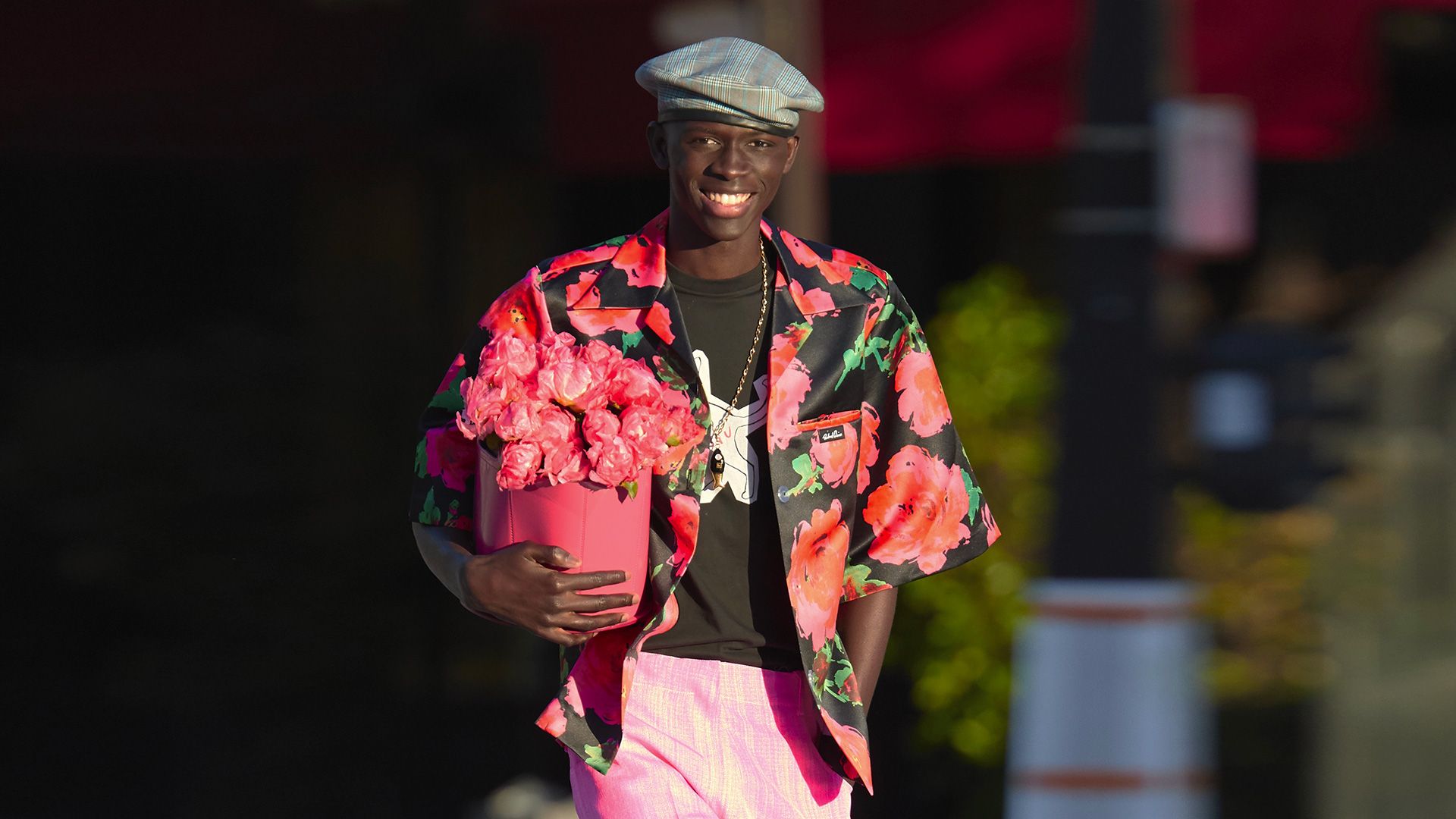
For many of us, our workdays move at a hundred miles an hour, our ultra-connected daily lives are frantic, our inboxes are never empty, and notifications are piling up... In short, the pressure is quickly mounting. The result of this modern affliction: Burnouts, social and family lives cut short, and a planet that is buckling under all of this excess. "The hurry virus has infected all areas of our lives: We talk quickly, we walk quickly, we eat quickly, we think quickly. Everything has become a race to the finish line," notes Canadian journalist Carl Honoré, author of In Praise of Slowness (Hachette).
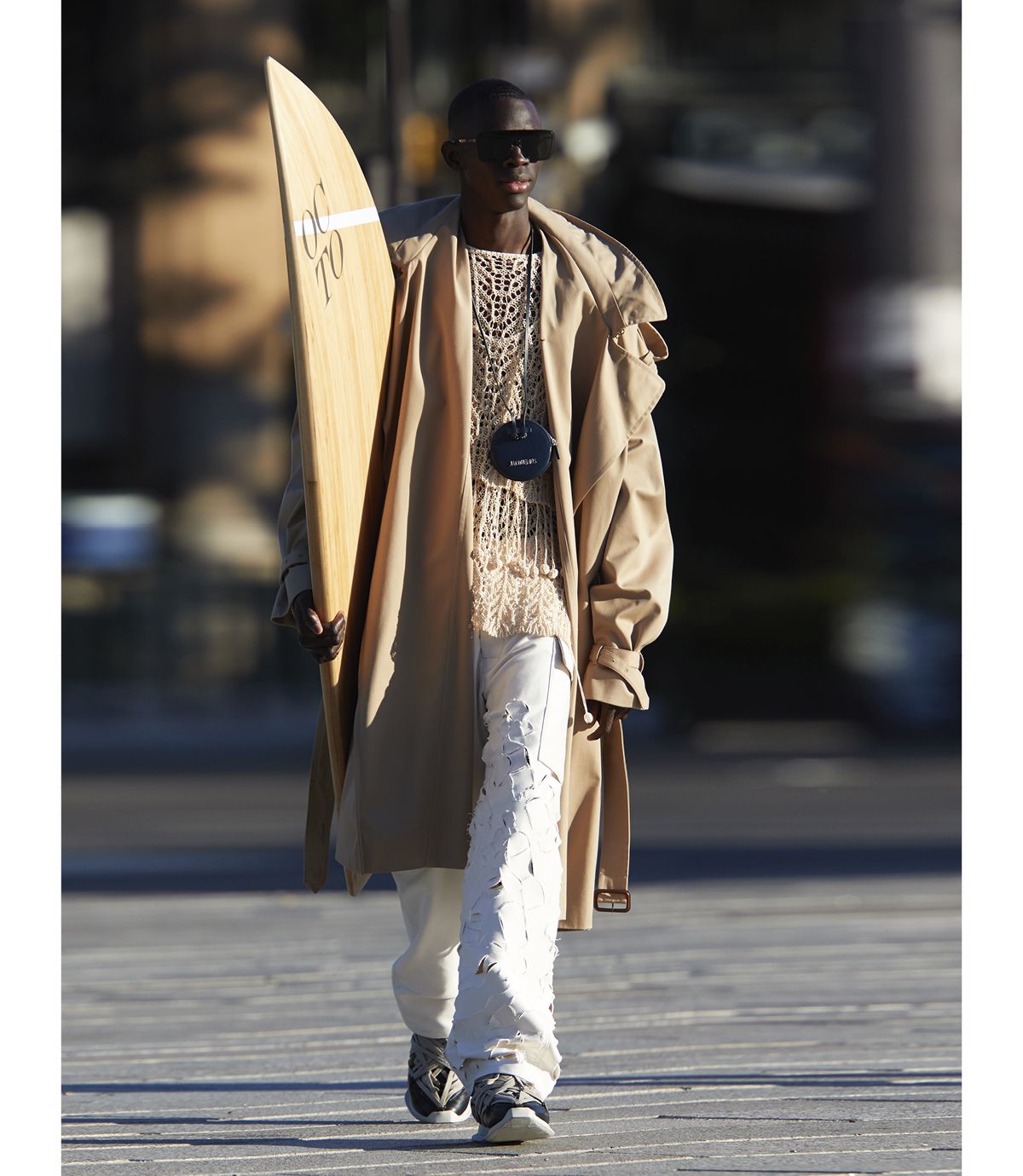
Trench coat Beige Y/Project Short sleeves knit top beige Jil Sander Long sleeves knit top beige Jil Sander Pants ecru Marni Sneakers Rick Owens, Black Sunglasses Saint Laurent, Blue round necklace Jacquemus
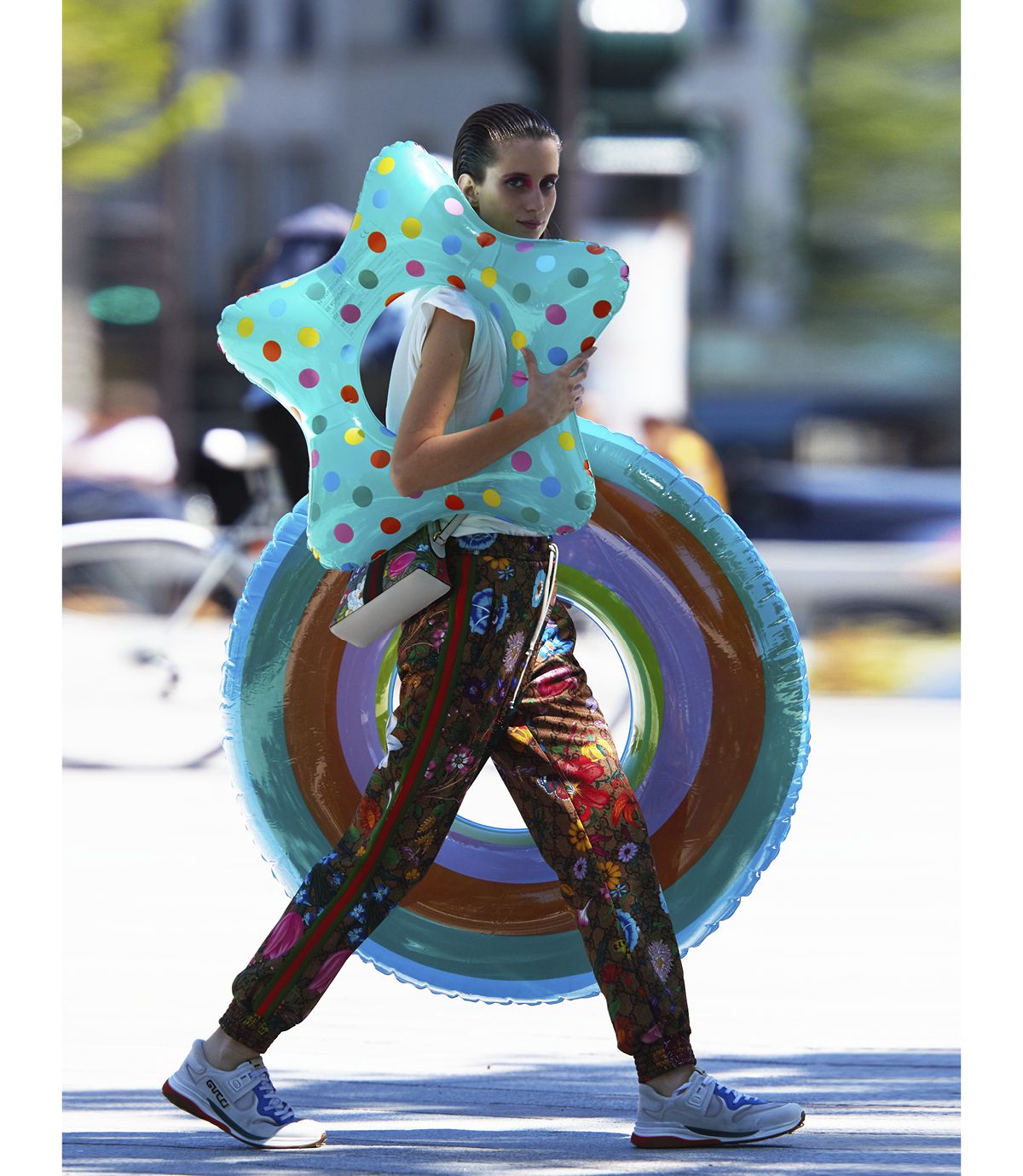
T-Shirt Logo Gucci, Floral print jogging pants Gucci, Shoulder bag floral print Gucci, Sneakers Gucci
Is forcing ourselves to slow down the solution to this frenetic pace? For Honoré, who has promoted the Slow Movement since the early 2000s, it's certain. "It doesn't mean that everything has to be done slowly, but you have to do things at a good speed. Sometimes you have to be fast, but in other situations you need to slow down. The principle of slowness is to place quality over quantity, and to be in tune with the present moment." A philosophy easily applicable to all aspects of life. "Slow food" involves eating healthy, local, and seasonal produce; "slow travel" is travelling in a way that limits your impact on the environment; there are even "slow cities", referring to towns that aim to preserve their historical identity in the face of globalisation.
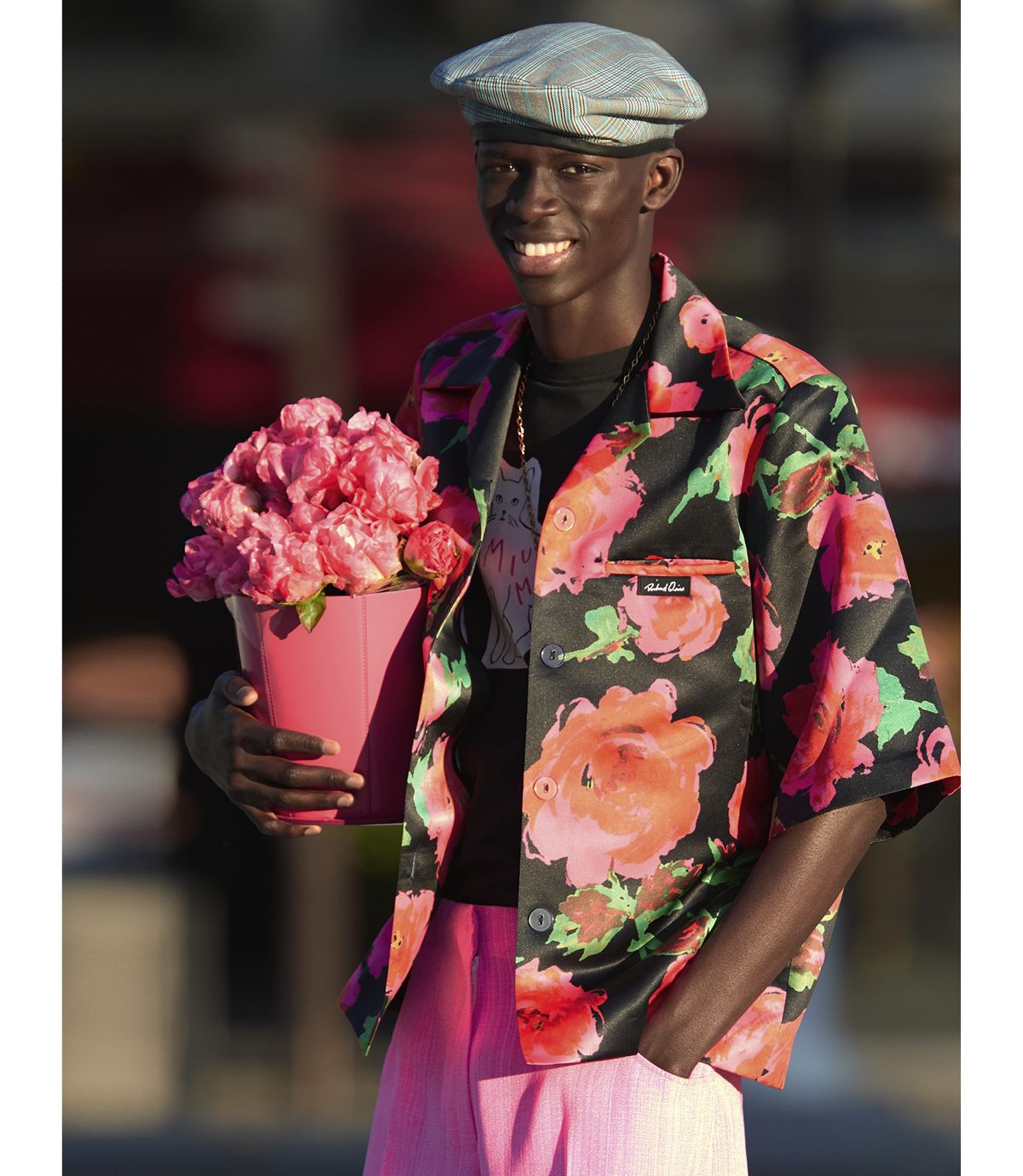
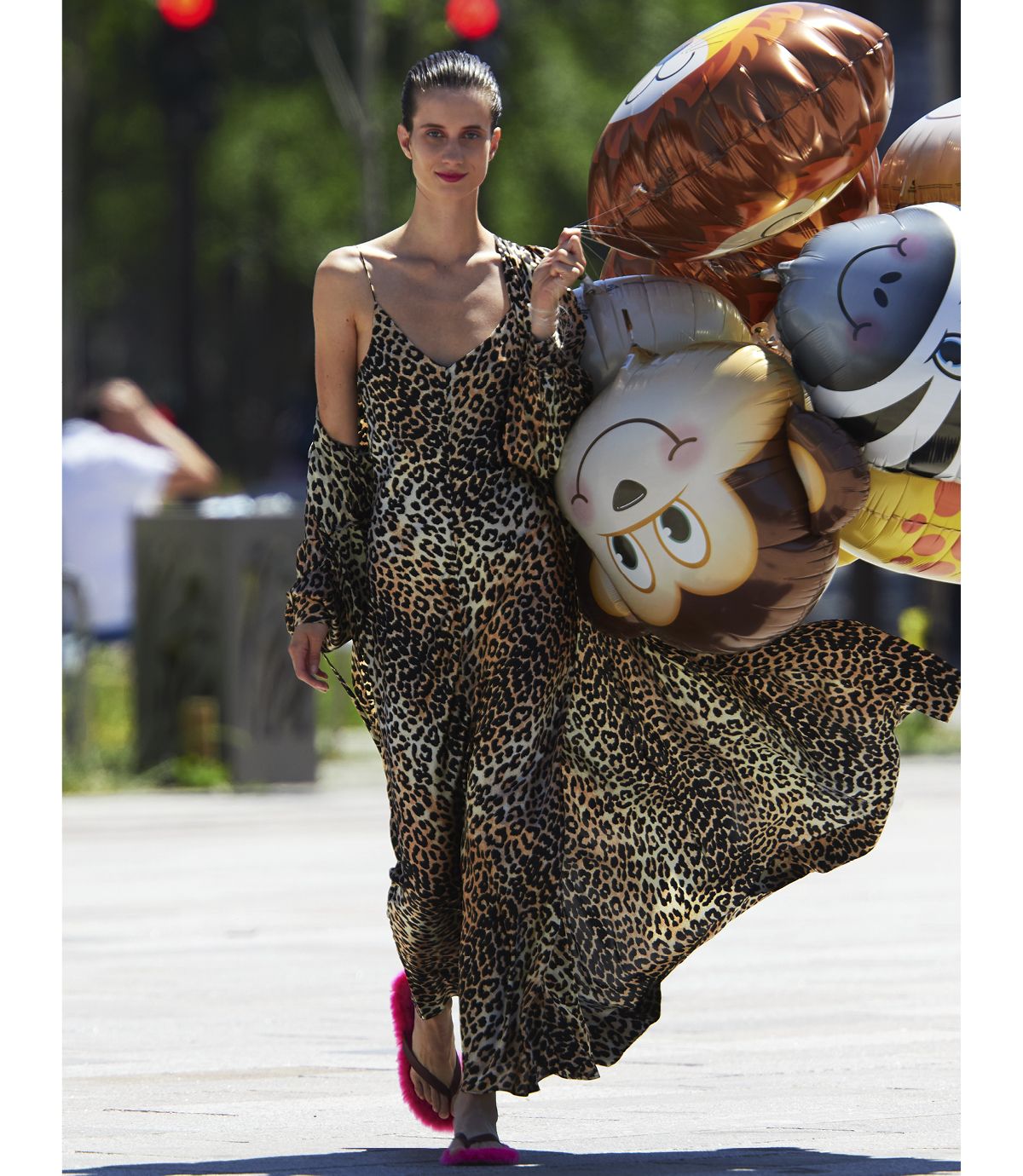
A world in slow motion
In the past few months, the movement has experienced a surge in popularity. The reason: Lockdown restrictions that have affected nearly three billion people around the world. These extraordinary circumstances led some people to seriously think about their current life choices and way of living. Parents were spending more time with their children, takeaway addicts took to home cooking, public transport commuters went on long walks, and over-active people discovered knitting and puzzles. "For some people, it was a revelation. We realised that rushing around less could make us happier," says Honoré.
This new lease of daily life also allowed us to reconnect with our surroundings. In terms of food, consumers turned to local businesses and shorter supply chains. Meanwhile, city-dwellers rediscovered in interest in nature. According to a study by the French national real estate federation, 200,000 French people who currently lived in cities were considering moving to the countryside once lockdown ended.
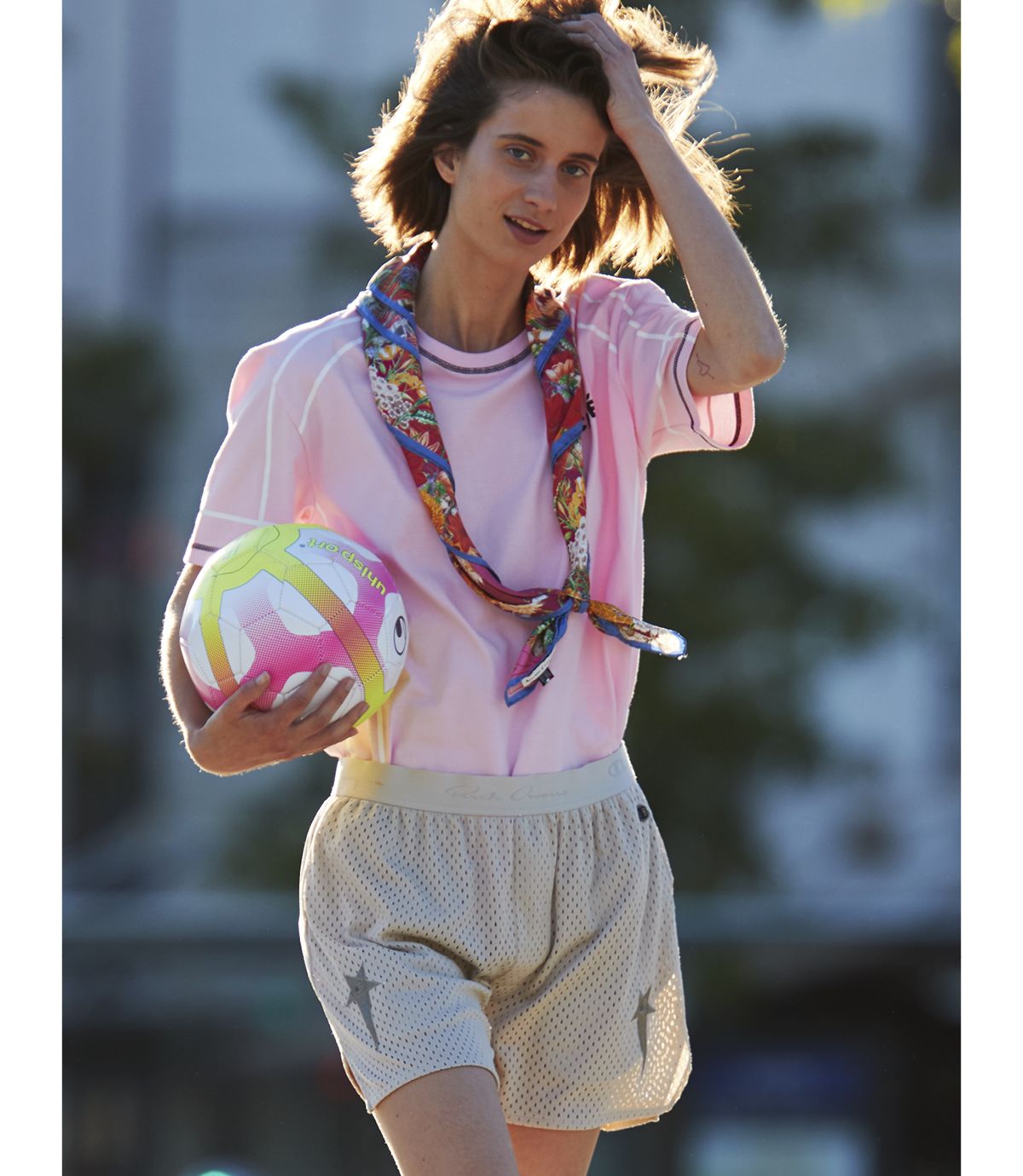
Pink t-shirt Koché Beige mesh shorts Rick Owens x Champion Scarf in Floral Pink Silk Aspinal of London
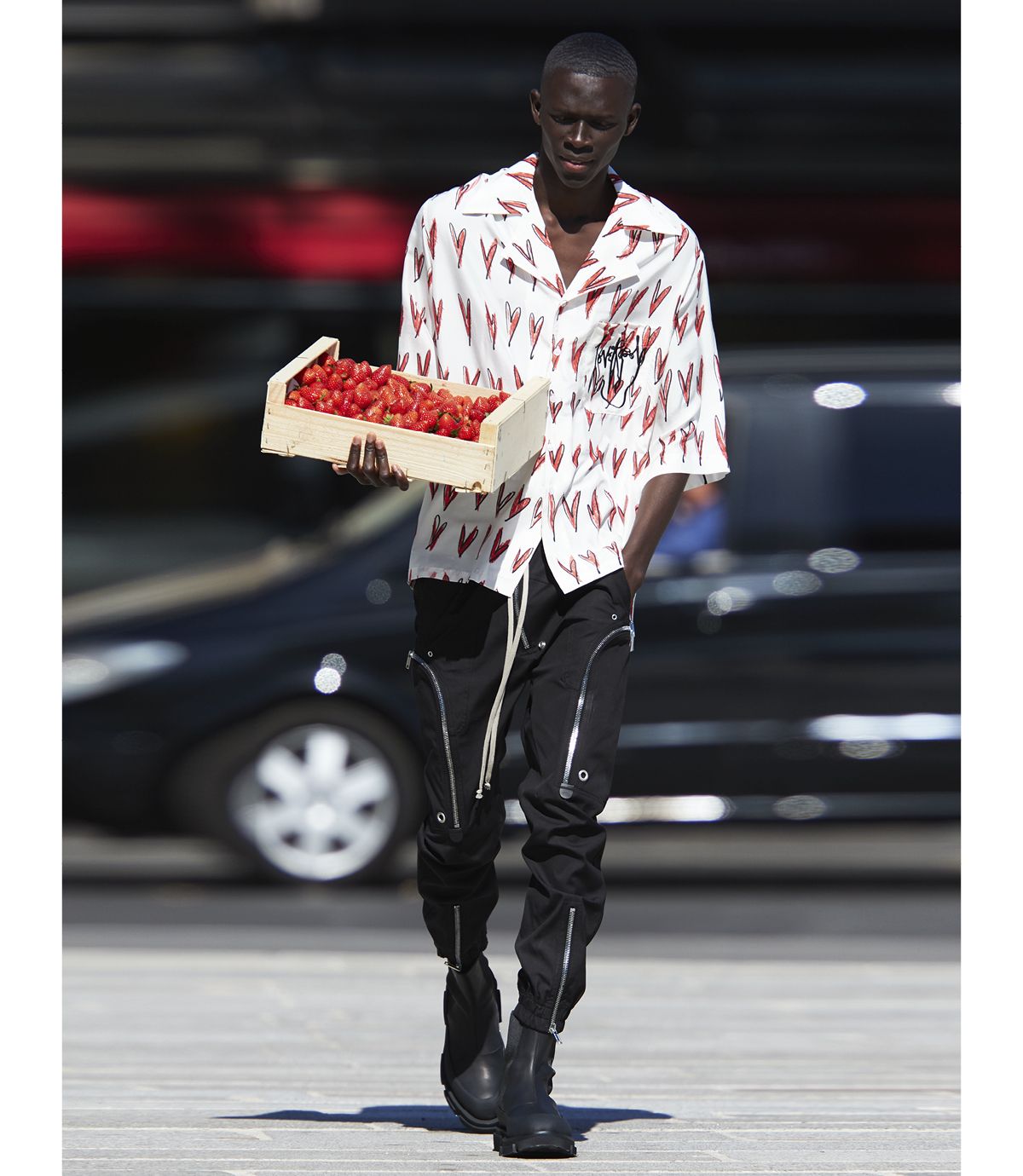
Shirt Print Hearts Charles Jeffrey Loverboy, Cargo Pants in Black Rick Owens, Black Boots Both Paris
Gilles Vernet, a former trader turned teacher, directed the 2015 documentary Tout s'accélère, in which he discusses the dizzying acceleration of the world with his primary school students. For him, our relationship with nature is central within the theory of slowing down. "The German philosopher Hartmut Rosa, who inspired me to make the film, explains it well. Acceleration prevents us from spending time with nature. We need to feel the wind, the sea air, the greenery and everything around us. It's the spice of life."
Putting on the brakes to protect our planet
The positive environmental impacts from our change in behaviour can already be seen. When factories began to slow production, car and plane trips were reduced to a minimum, people living in cities noticed that birds were starting to sing again and that the air was cleaner. In China, greenhouse gases dropped by 25% in four weeks, amounting to 200 million tonnes of CO2—nearly two-thirds of France's total annual emissions. Nature even appears to be physically returning to its rightful state. Across the globe, deer, ducks and even dolphins have appeared in urban areas or in places from where they disappeared.
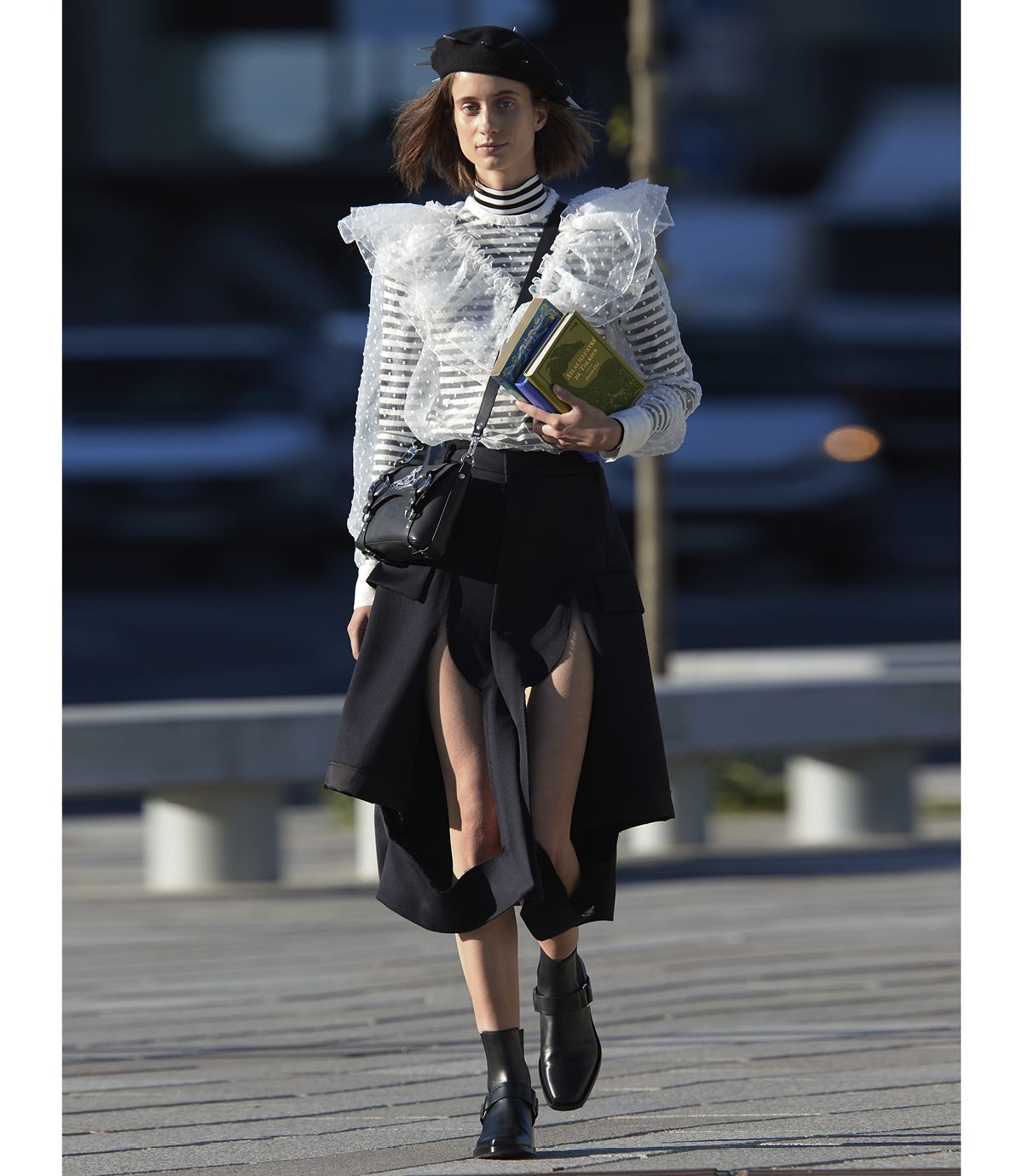
Striped Turtleneck T-Shirt Burberry, White blouse with ruffles Custommade, Bermuda shorts Maison Margiela navy blue, Boots Black Givenchy, Satchel bag black Vivienne Westwood , Studded back Beret Charles Jeffrey Loverboy
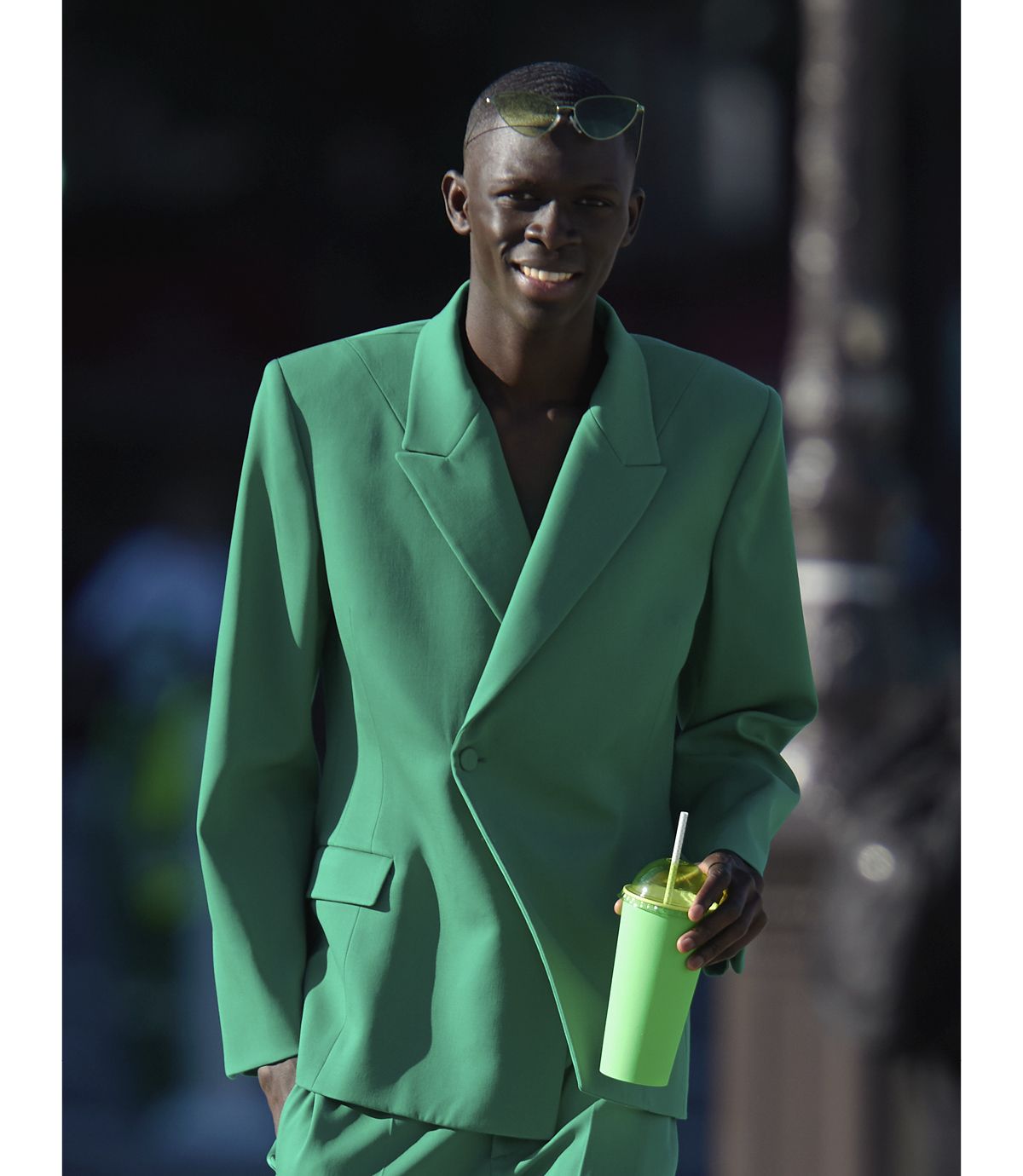
Green Jacket Balenciaga, Trousers Green Balenciaga, Sunglasses Green Balenciaga
Is this an interlude that will be soon forgotten, or will we continue this slower lifestyle in some way once COVID-19 is far behind us? Florence de Ferran, a specialist in socially responsible behaviour and professorial lecturer in management of sciences at the University of La Rochelle, remains sceptical. "In terms of psychology, we know that an individual will modify their behaviour if there are contextual elements that lead them to make these choices. However, there is a risk that people will go back to their old habits once lockdown is over." Unless governments implement policies, encouraging societies to retain these lifestyles. "There would have to be laws in place that urge environmentally-friendly behaviour," de Ferran suggests.
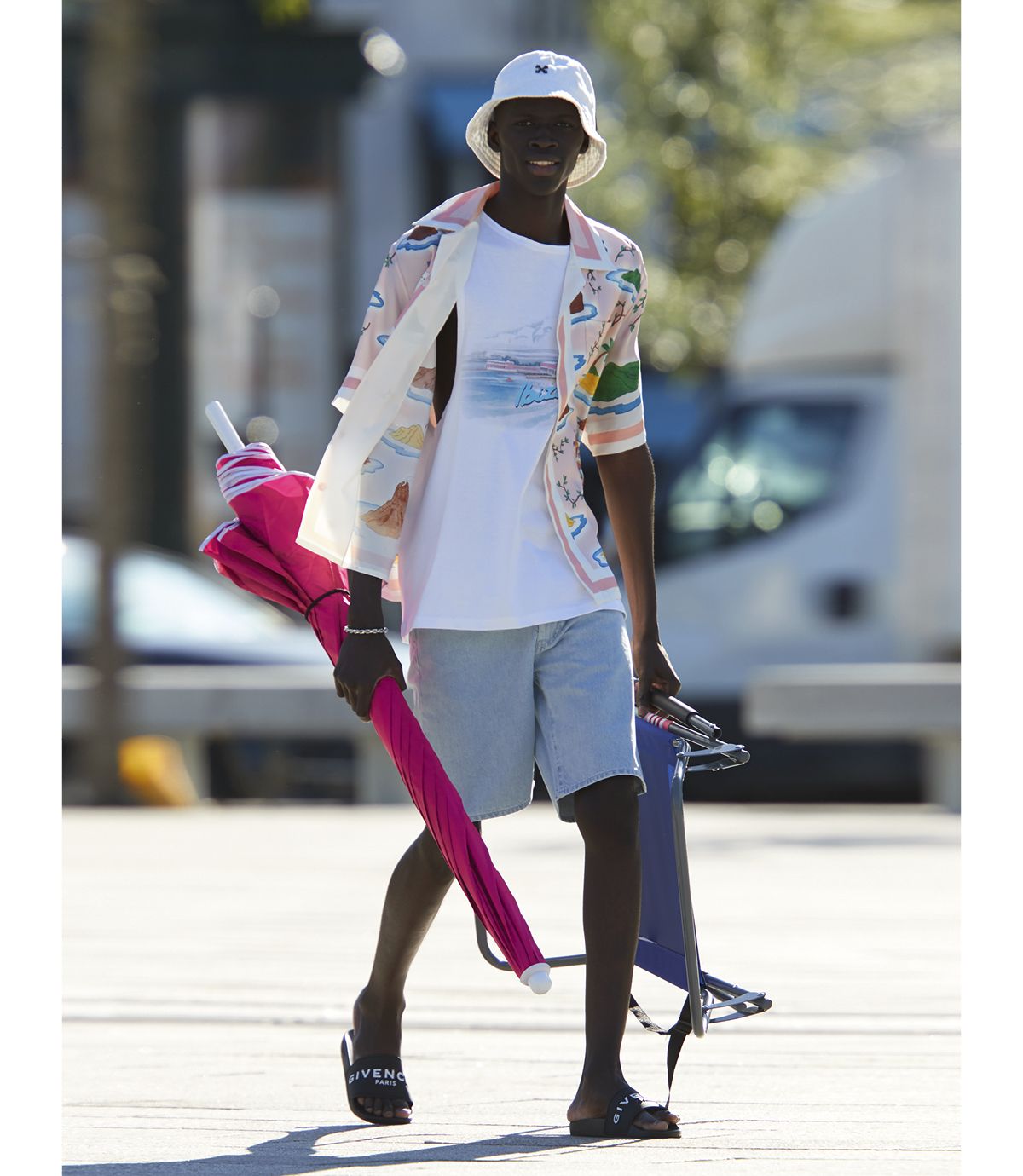
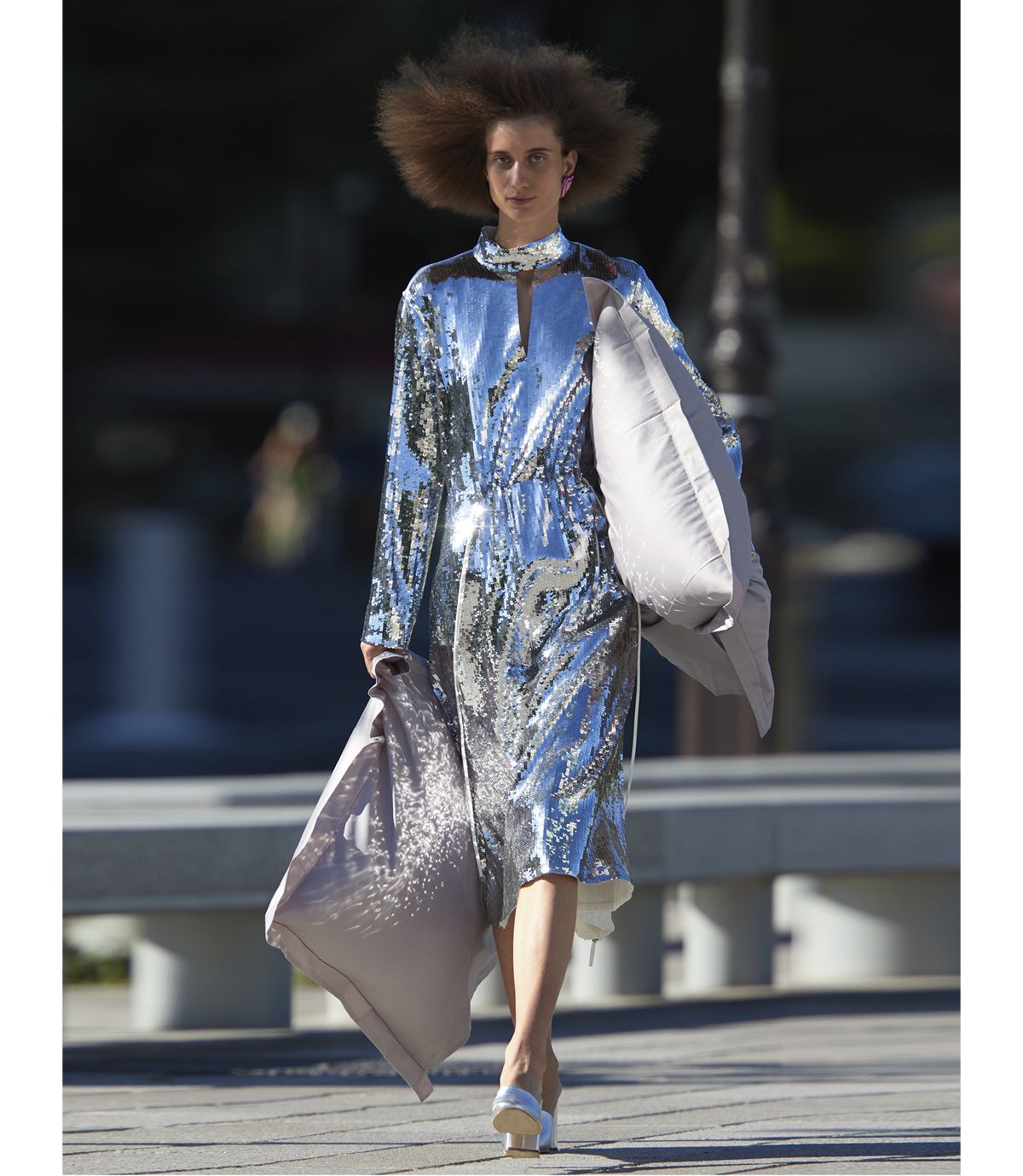
Change is coming
Fortunately, some changes may be long-lasting after all, as certain cities have now chosen to become more bike-friendly. In Paris, new cycle paths were built on 11 May 2020, and the city hall plans to ensure their continuous usage. In terms of remote working, many employees realised the potential of having more flexibility in their schedule, and the possibility to spend less time in their car or on the Tube. Many companies are considering retaining this hybrid way of working.
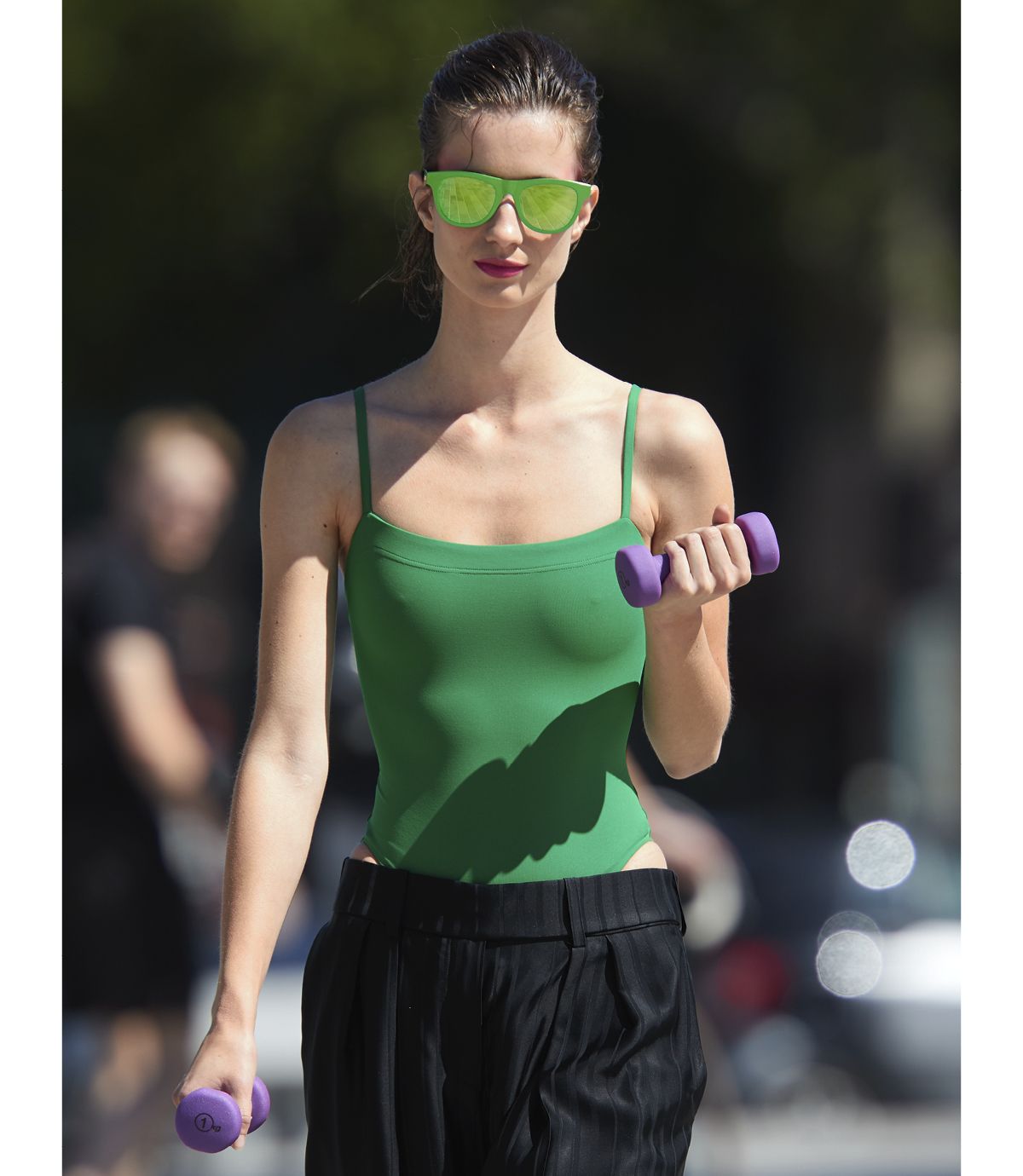
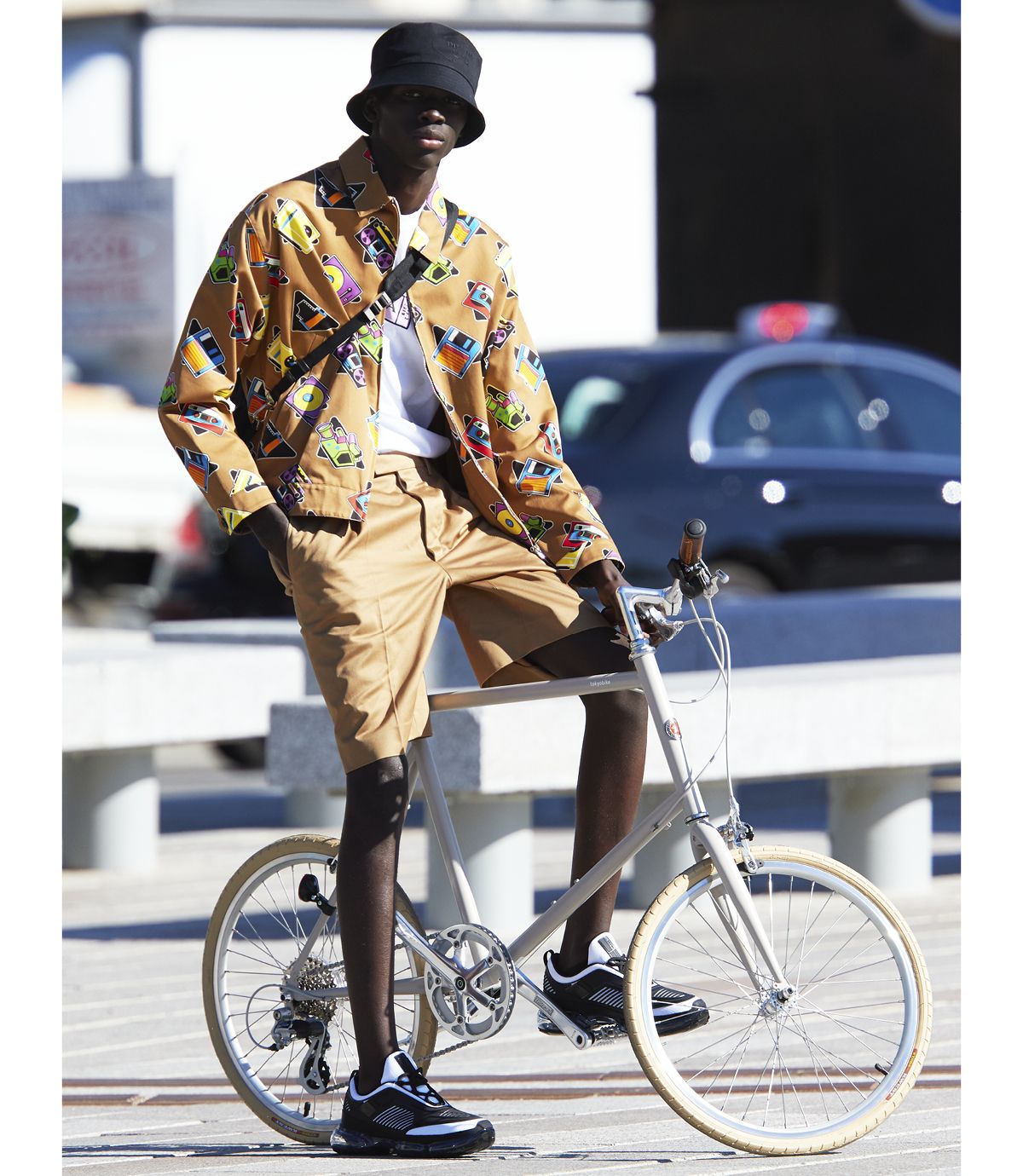
In Carl Honoré's view, two months of lockdown cannot be pushed from our minds so quickly. "We have experienced the biggest slowing-down that the world has ever seen. There's a big difference between talking about it in an abstract way and actually living it," he points out. "While we are used to other people dictating our schedules, lockdown allowed us to regain control of our time and have more freedom to choose our own rhythm." And according to him, when we have more control over our time we are more productive, more creative, more fulfilled and feel closer to nature. "Those who have gone through the sensory experience of a slower and healthier life will not forget it so easily," he concludes.